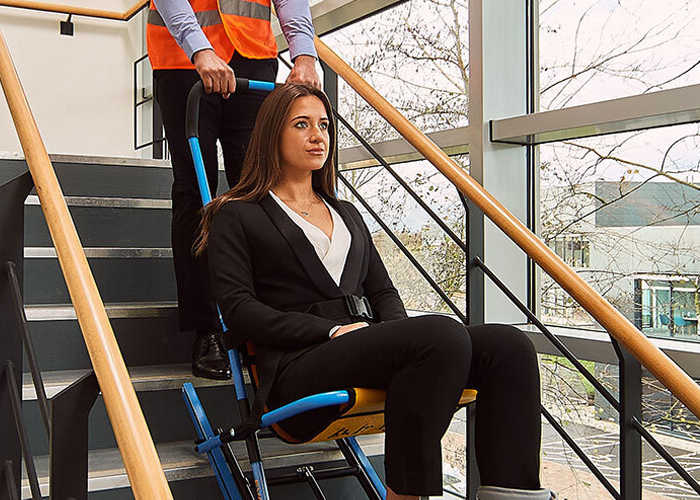Evacuation needn’t be a risky business
As the current academic year ends and planning for the next commences, education administrators have a duty of care to ensure that those amongst the new influx of students who require assistance with mobility get the support they require in the event of an emergency.
As important as a robust evacuation plan and regular practice, is familiarity with the equipment that aids escape. A 2010 report by Evac+Chair International found that despite owning evacuation chairs half (50 per cent) of respondents from the education sector failed to use them during evacuation drills. This highlights the importance of sufficient operational training and maintenance. Addressing this requires careful planning centred on ensuring those individuals most at risk are assigned a personal emergency evacuation plan (PEEP). However, drafting these is about more than just box ticking. It requires close consultation with the individuals concerned in order to assess their daily movements and map planned emergency responses around these.
It is important to realise that able bodied individuals can also be impaired by panic during an emergency which directly affects mobility, highlighting the importance of not only ensuring evacuation chairs are installed that staff are properly trained in how to operate them. In addition, administrators must take into account the needs of night class attendees, some of whom may be elderly or incapacitated, and therefore less able to negotiate stairs in the event of an emergency.
To ensure safety remains a priority, schools, colleges and universities should enlist fire wardens and management to deploy regular co-ordinated practice sessions; these should include practice with relevant equipment to ensure vital skills sets don’t diminish. Finally, specific drills should be conducted with a reduced number of staff and students, in order to be prepared for an emergency taking place outside normal working hours.
In addition to the 2010 Equality Act, which considers inadequate evacuation plans for the disabled to be direct discrimination, the Regulatory Reform (Fire Safety) Order 2005 places a legal duty on those who manage premises to ensure adequate means for escape for all building occupants.
By taking a responsible approach to emergency evacuation planning and practice, education administrators have a real opportunity to create a strong foundation of care for all building occupants.
Mark Wallace is managing director of Evac+Chair International



















